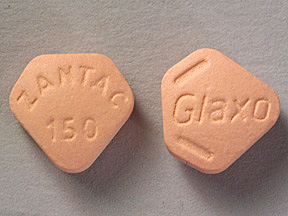Pharmacies pull Zantac, APO-Ranitidine

LOCAL pharmacies have pulled heartburn and ulcer medicine brands Zantac and APO-Ranitidine from their shelves.
This after the Ministry of Health said companies Apotex and GlaxoSmithKline issued letters of voluntary recall of the preparation containing the Ranitidine Hydrochloride drug. On Friday, the ministry recalled all medications with the Ranitidine Hydrochloride drug “out of an abundance of caution to safeguard the population.”
“This is as a result of the presence of a nitrosamine impurity, N-nitrosodimethylamine, above acceptable levels. The public is advised to return all purchased products to the point of sale immediately. Persons who received the preparations from public health institutions are advised to return these preparations to the pharmacy department of the nearest public health institution. Patients can speak to the health care provider for further information.”
One pharmacist from St James explained that N-nitrosodimethylamine was usually present in the medication because of the manufacturing process, but in this case it was above “acceptable levels” which had the potential to cause cancer. He said Zantac was supplied by GlaxoSmithKline and APO-Ranitidine by Apotex. He said local distributors of Zantac recalled certain batch numbers of the brand.
He said each box cost about $200, but usually with a recall pharmacies received 100 per cent credit from distributors even if a box was already opened. Therefore, pharmacies were not losing any money.
But one San Juan pharmacist believes all brand name and generic ranitidine medication should be removed from pharmacy shelves although only Apotex and GlaxoSmithKline was named.
He admitted it would not affect him much since he only carried two medicines with Ranitidine Hydrochloride. Still, he said, “A good pharmacist or a good doctor would stay away from all because they all have the same formula. If they remove one, why not the other?”
He said he had been in the pharmaceutical business about 40 years and questioned the recall. “All these years people using Zantac and nobody ever came with proof that it causes cancer. Suddenly there’s a problem and it made me wonder. I don’t know if it’s politics with the Food and Drug Administration or what, I can’t say for sure. But I am not panicking.”
He added that the recall process was not difficult, but tedious as pharmacies would have to gather all the medications, find bills, value the remaining stock, submit the information to agents who would then check the records before authorising payments.
President of the Pharmacy Board, Andrew Rahaman, said if pharmacies note a recall on a reputable international site, they often take the responsibility of stopping sales even if the Chemistry Food and Drug Division of the Health Ministry did not issue an official recall.
He said although he could not speak for every pharmacy, as long as customers had proof of purchase, pharmacies would give customers a credit note or refund if they wish to return the medication.
He stressed that there were many alternatives to Zantac and APO-Ranitidine to which pharmacists should be able to guide customers. He said people should also feel free to speak with their doctors for alternative medication.


Comments
"Pharmacies pull Zantac, APO-Ranitidine"